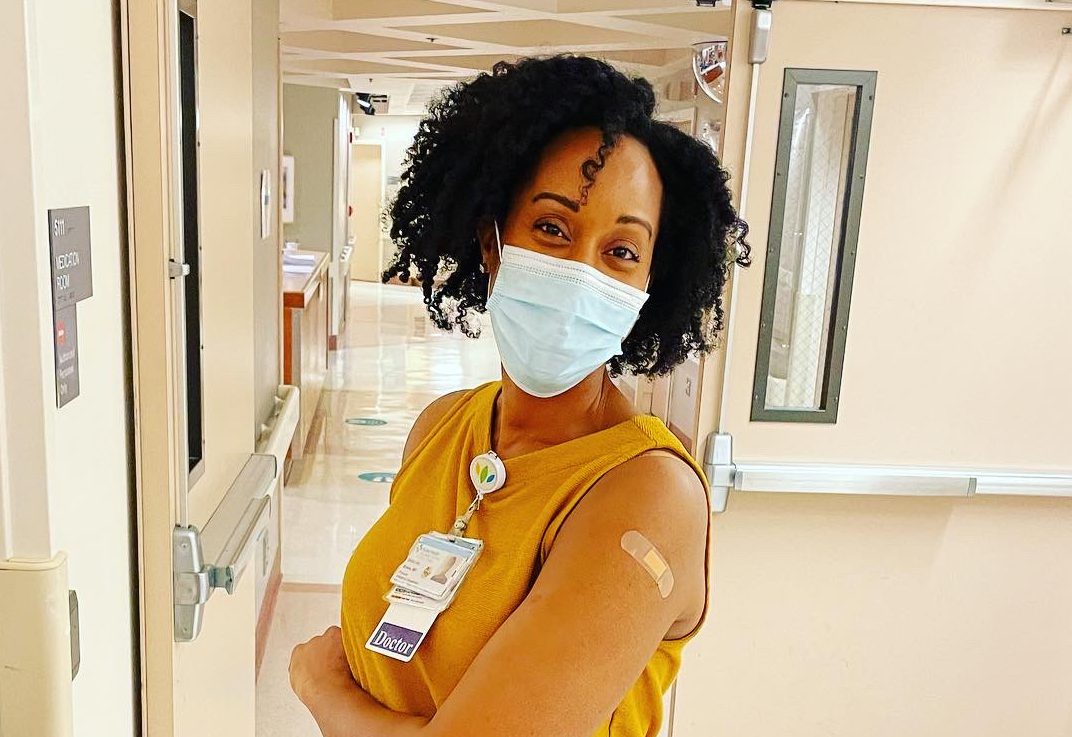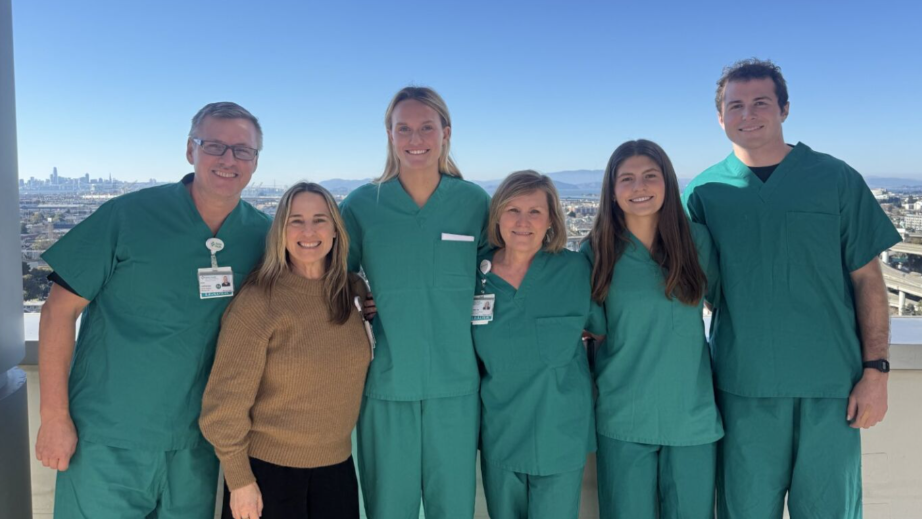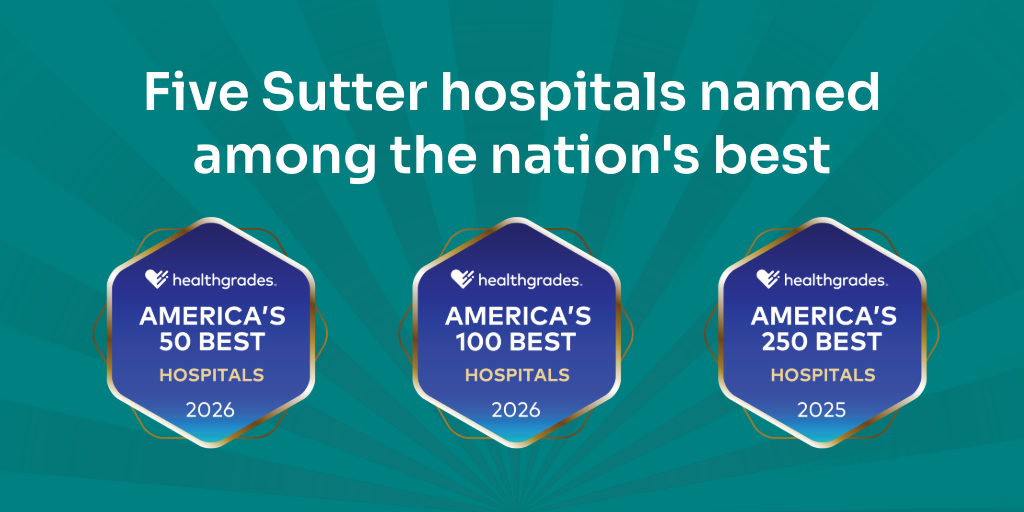As the COVID-19 pandemic moves into its second year, Dr. Stephanie Brown, clinical lead for Sutter’s Institute for Advancing Health Equity, talks vaccination and factors that have contributed to inequities in health outcomes within communities of color.
Doctor’s Diary: Why I Got Vaccinated
How Some African Americans Set Aside Historic Distrust to Receive COVID-19 Shot
By Stephanie Y. Brown M.D., MPH
Emergency Physician, Alta Bates Summit Medical Center, Sutter Health
Clinical Lead, Institute for Advancing Health Equity, Sutter Health
I got my first dose of the Pfizer COVID-19 vaccine on Dec. 19. I had mild injection site soreness, but otherwise felt normal.
When I tell you I know the hurt, the distrust and the fear that people of color feel when faced with the decision to take this vaccine, I know because that is part of my story. I feel it too.
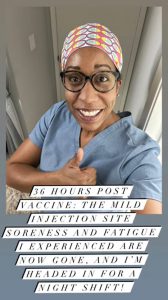
Dr. Brown posted to social media when the mild symptoms she experienced from the COVID-19 vaccination were gone.
I am a descendent of enslaved Africans. I am the daughter of two African American physicians, and I hail from the south side of Chicago. I’ve had these discussions at the dinner table, in the classroom and at the bedside.
As an emergency physician in Oakland, I have witnessed the horrors of COVID-19 up close for the past year. Early in the pandemic, I had an African American patient break down crying when I had to put him on a ventilator, telling me that doing so would be his death sentence. He was right to be afraid, based on his other health conditions, his age and the color of his skin. It was so critically important to me to make sure that he felt heard.
We have seen the data and the impact of this virus on our African American communities. I co-authored a paper, and have another in the queue, that showed that African American COVID-19 patients are nearly three times more likely to be hospitalized and are dying at disproportionate rates. Additionally, I have read the data from the vaccine trials with a trained eye.
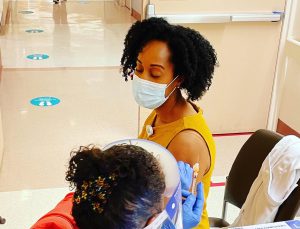
Dr. Brown is set to receive her second dose of the COVID-19 vaccine on Jan. 9.
I also know there is understandable fear and hesitancy in the African American community surrounding the vaccine, even among clinicians. You see, we are first African American before we are clinicians, so all of our individual and collective cultural experiences that have brought us to this moment weigh into our beliefs and our comfort level with the vaccine. A physician friend who is pregnant wondered if the vaccine might make her even more likely to have pregnancy-related complications, on top of her existing risk because she is African American. My 69-year-old father, a practicing OB-GYN, who often recalls his mother’s stories of her early life in Mississippi, confided in me that he worried about the government’s involvement in the production of the vaccine. Thankfully, both my friend and my father recently received the vaccine, but if these clinicians needed convincing, you can imagine the hesitation for people who don’t know all the science.
Historically, African Americans have a greater distrust in the healthcare system. The Tuskegee Study of Untreated Syphilis, where a group of African American men were withheld penicillin treatment for syphilis in order to study the disease’s natural history, was a U.S. government-sponsored study. Dr. James Marion Sims operated on three enslaved women, Lucy, Betsy and Anarcha, over 40 times without anesthesia. Sims was later hailed to be the “Father of American Gynecology” for his work, and even had a surgical instrument named after him. We have reason to harbor distrust in the healthcare system given the systematic oppression to which African Americans have been subjected throughout the history of this country. But it will be doubly tragic if these historical wrongs keep people of color from getting vaccinated and protecting themselves and our communities.
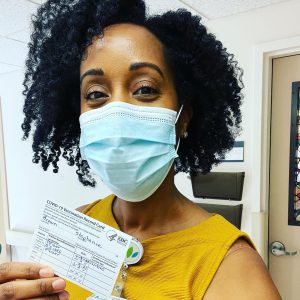
Dr. Brown proudly shows her record of vaccination.
We have a long way to go, but we can’t lose sight of the positives. Our world today, while far from perfect, is not the same as it was a generation ago. We have much more rigorous oversight of medical research and can trust the process. Perhaps most importantly, we have leaders at all levels who are people of color and have helped to create the vaccine and stepped up to demonstrate its safety. These leaders are caring for our communities and represent us in the highest levels of government. An African American scientist, Kizzmekia Corbett, Ph.D., was at the forefront of developing the Moderna vaccine ― which was reported to have 94 to 95% efficacy against clinical disease and almost 100% efficacy against serious disease. Before the vaccine could be approved, it was tested on thousands of volunteers, 10% of which were African Americans in line with the African American share of the total U.S. population. As a doctor, the data tells me it is safe. As an African American, knowing that people who share my ethnicity and history helped develop the vaccine makes me feel trust. While we can never forget the past, it also should not dictate our actions without considering the present.
For all of these reasons, I got vaccinated. I got vaccinated for my family, my community and for this country, so that we all may begin to heal from this pandemic. I am looking forward to my second dose on Jan. 9. If you have questions, fears or concerns, let’s talk so that we can move toward more equitable outcomes for COVID-19.
Sutter’s Institute for Advancing Health Equity is committed to improving health outcomes in the communities we serve and across the country, including promoting equity in testing and care and overcoming challenges presented by vaccine hesitancy among some of our most vulnerable patients. Additionally, our team is actively partnering with Roots Community Health Center in East Oakland to provide information, answer questions and encourage others to get the vaccine as it becomes available.

